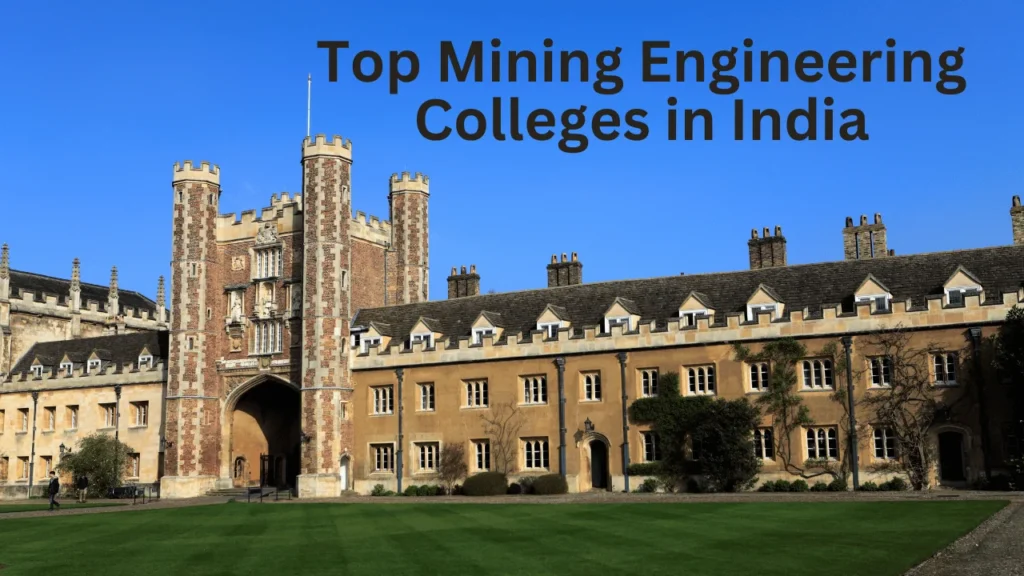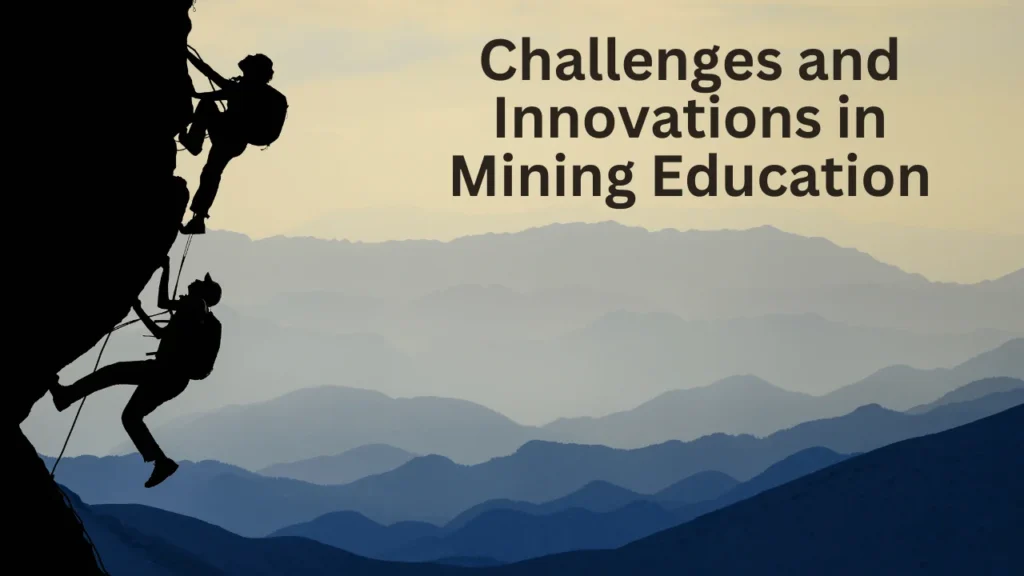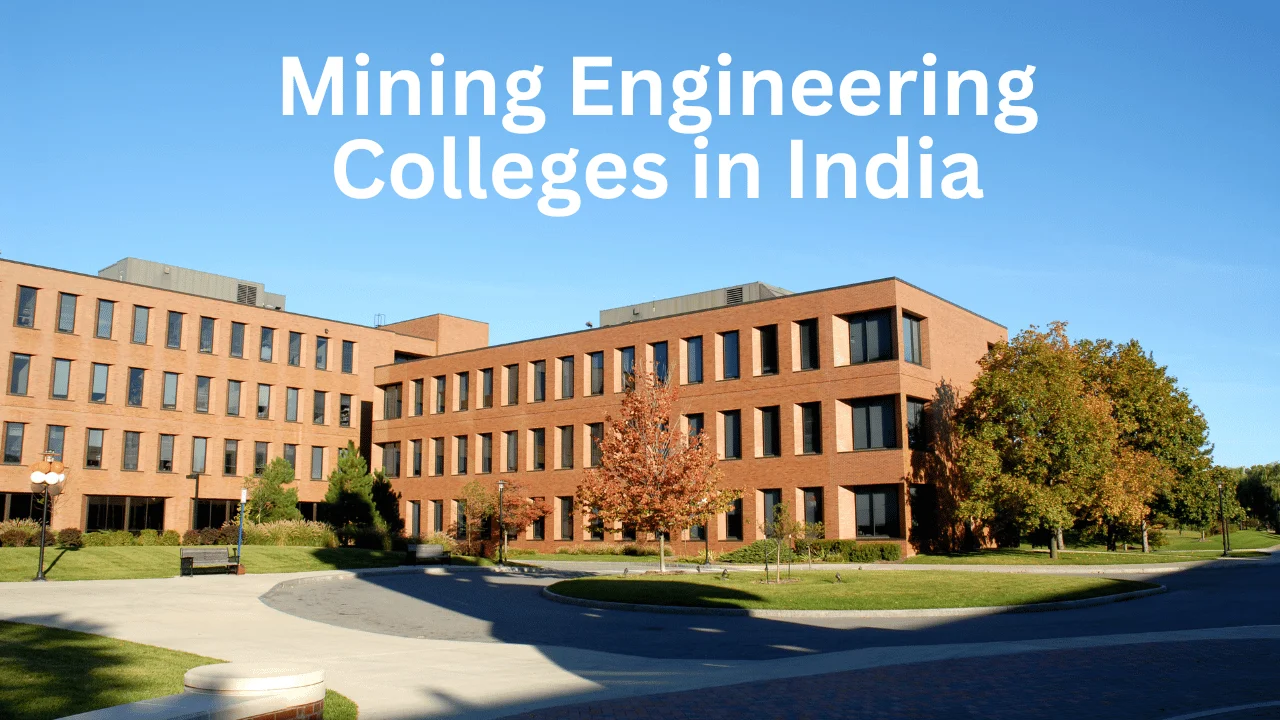Mining engineering is a pivotal sector in India’s economy, steering the exploration and management of its vast mineral resources. Mining engineering colleges in India play a crucial role in shaping the future of this industry by educating and training the next generation of mining engineers. These institutions are recognized for their rigorous academic programs that blend theoretical knowledge with practical, real-world application. Their commitment to fostering a deep understanding of mineral exploration, extraction, processing, and the sustainable management of natural resources is commendable. This comprehensive educational approach ensures that graduates are well-prepared to tackle the challenges and opportunities in the mining sector.
Mining Engineering Education
Mining engineering education in India is designed to equip students with a blend of knowledge and skills necessary for a successful career in the mining industry. The curriculum encompasses a broad range of subjects including geology, mine planning, mineral processing, and mine safety. This holistic approach ensures that students not only master the technical aspects of mining but also understand the importance of environmental sustainability, safety practices, and ethical considerations. Premier institutes such as the Indian Institute of Technology (IIT) Kharagpur, Indian School of Mines (ISM) Dhanbad, and the National Institute of Technology (NIT) Rourkela are renowned for their well-structured programs, experienced faculty, and state-of-the-art facilities. Through a combination of classroom learning, internships, and field trips, students gain invaluable real-world experience, making them highly sought after by both the public and private sectors.
Top Mining Engineering Colleges in India

India boasts several esteemed institutions offering top-notch mining engineering programs. These colleges are celebrated for their academic excellence, innovative research, and strong industry connections.
Curriculum and Academic Excellence
The curriculum in these top colleges is meticulously designed to cover all critical aspects of mining engineering. Students learn about geology, the science of mineral exploration, and the various techniques used in mineral extraction and processing. Advanced courses delve into mine safety, environmental impact assessments, and the application of cutting-edge technology in mining operations. The curriculum is often enhanced by guest lectures from industry experts and partnerships with leading mining companies, providing students with a broader perspective and practical insights.
State-of-the-Art Facilities and Research Opportunities
Facilities in these institutions include modern laboratories, simulation centers, and research hubs that allow students to experiment with and apply their knowledge in controlled, real-world scenarios. Research is a significant component, with many colleges conducting pioneering studies in areas like sustainable mining practices, automated mining technology, and resource management. These research opportunities not only contribute to the field but also allow students to explore their interests deeply and develop specialized skills.
Experienced Faculty and Mentorship
The faculty in these colleges consists of experienced professionals and renowned academics who bring a wealth of knowledge and industry insights. They mentor students through their academic journey, offering guidance on projects, research, and career development. This mentorship is crucial in helping students navigate the complexities of the mining industry and in fostering a learning environment that encourages curiosity and innovation.
Career Prospects and Placement Records
Graduates from these top institutions enjoy excellent career prospects, thanks to the colleges’ strong placement records. Many have established connections with leading mining companies, engineering firms, and governmental agencies, facilitating lucrative job opportunities for their students. Career services and alumni networks further support students in their job search, offering workshops, networking events, and recruitment events.
Internships and Fieldwork Integration
Practical experience is a cornerstone of mining engineering education, and these colleges emphasize internships and fieldwork. Students have opportunities to work on real mining sites, engage in mineral exploration activities, and participate in environmental impact assessments. These experiences are invaluable, enabling students to apply their academic knowledge in practical settings and to understand the day-to-day challenges and operations of the mining industry.
Challenges and Innovations in Mining Education

The field of mining engineering is constantly evolving, and educational institutions must adapt to these changes to stay relevant and effective.
Adapting to Technological Advances
As the mining industry embraces new technologies like automation, AI, and remote sensing, colleges are updating their curricula to include these topics. Students learn about the latest advancements and how they can be applied to improve safety, efficiency, and sustainability in mining operations. This ensures that graduates are not only knowledgeable about current practices but are also prepared for the future developments of the industry.
Focus on Sustainability and Ethics
With growing concerns about environmental impact and sustainability, mining engineering programs are increasingly incorporating these themes into their courses. Students study the ethical implications of mining, learn about sustainable practices, and are trained to devise solutions that minimize environmental damage while maximizing resource extraction. This focus is crucial in preparing students to be responsible professionals who can contribute positively to the industry and society.
Overcoming Industry Challenges
Mining engineering students are also taught to address the various challenges faced by the industry, such as regulatory compliance, worker safety, and community relations. Through case studies, simulations, and problem-solving exercises, they develop the skills necessary to navigate these complex issues and to implement effective solutions.
Global Standards and Comparisons
Comparing the curriculum and standards of Indian mining engineering colleges with international benchmarks helps ensure that the education provided is world-class. This global perspective prepares students for careers that may take them beyond India’s borders and allows them to compete and collaborate on an international scale.
Emerging Research Trends in Mining Engineering
The field of mining engineering is dynamic, with new research trends continually shaping the future of the industry. These emerging trends are critical for advancing mining practices and ensuring the sector’s sustainability and efficiency.
Automation and Robotics in Mining
The integration of automation and robotics into mining operations is revolutionizing the industry. Indian mining engineering colleges are at the forefront of teaching students about autonomous vehicles, drones for aerial surveys, and robotic systems for hazardous tasks. This focus ensures that graduates are proficient in using these technologies to increase productivity, improve worker safety, and reduce environmental impact.
Advanced Mineral Processing Techniques
As the quality of ore deposits varies and environmental regulations become stricter, advanced mineral processing techniques are becoming increasingly important. Colleges are updating their curricula to include the latest methods in hydrometallurgy, bioleaching, and flotation processes. These techniques are taught with an emphasis on maximizing recovery rates while minimizing energy consumption and waste production.
Geospatial Data Analysis and Modeling
The use of geospatial data analysis and modeling is another key area of research. Students learn how to employ Geographic Information Systems (GIS), remote sensing, and 3D modeling to map and assess mineral deposits. This knowledge is crucial for planning efficient mining operations and for conducting environmental impact assessments.
Sustainable Practices and Community Engagement
Mining operations are not just about extracting resources; they also involve interacting with local communities and the environment. Indian mining engineering colleges are emphasizing the importance of sustainable mining practices and the need for effective community engagement.
Environmental Impact and Reclamation
Students are taught to assess the environmental impacts of mining activities and to develop strategies for land reclamation and rehabilitation. This includes the restoration of mined areas to their natural state or their adaptation for new uses, such as agriculture or recreation. This training helps future engineers create mining plans that balance economic benefits with environmental stewardship.
Social Responsibility and Community Development
The curriculum also covers the social aspects of mining, including how to work with local communities to ensure that mining benefits them. This includes understanding the social implications of mining, such as displacement and employment opportunities, and how to engage with communities to foster positive relationships and mutual benefits.
Risk Management and Safety Practices
Mining is inherently risky, and managing these risks is crucial for the safety of all involved. Mining engineering colleges in India place a strong emphasis on teaching students about risk assessment, safety protocols, and emergency response planning.
Health and Safety Regulations
Students are educated on the various health and safety regulations that govern the mining industry. This includes training on how to implement safety measures, monitor hazardous conditions, and ensure compliance with national and international safety standards.
Risk Assessment and Mitigation Techniques
Colleges teach students how to conduct thorough risk assessments and to develop and implement mitigation strategies. This includes understanding the potential hazards in different mining environments and learning how to use technology and planning to reduce these risks.
Innovative Educational Methods and Student Development
To keep up with the evolving nature of the industry, mining engineering colleges in India are adopting innovative educational methods and focusing on the holistic development of students.
Experiential Learning and Practical Training
Beyond traditional classroom learning, students are engaged in experiential learning through labs, workshops, and on-site visits. These experiences are designed to give students a practical understanding of mining operations and to develop their problem-solving skills in real-world settings.
Collaborative Projects and Interdisciplinary Learning
Many colleges encourage students to participate in collaborative projects that require interdisciplinary learning. These projects often involve students from other engineering disciplines or even other fields like business and environmental science, fostering a broader understanding and a more integrated approach to solving mining-related challenges.
Leadership Development and Soft Skills Training
Recognizing the importance of leadership and communication in the mining industry, colleges also focus on developing students’ soft skills. This includes training in leadership, teamwork, problem-solving, and effective communication, all of which are essential for a successful career in mining engineering.
Frequently Asked Questions
What are the admission requirements for mining engineering colleges in India?
Admission to these prestigious institutions typically requires excellent performance in national-level entrance exams like JEE Main and JEE Advanced. Prospective students must also meet specific academic criteria and often undergo interviews or aptitude tests.
Which mining engineering college in India has the best placement record?
While several institutions boast impressive placement records, IIT Kharagpur and ISM Dhanbad are frequently cited for their high placement rates and the lucrative positions their graduates secure in the industry.
How do mining engineering colleges in India incorporate sustainability in their programs?
Sustainability is integrated through courses on environmental impact, sustainable mining practices, and the development of green technologies. Students are encouraged to pursue projects and research in these areas to deepen their understanding and expertise.
What are the career prospects for graduates of mining engineering programs in India?
Graduates can pursue careers in various sectors, including mining operations, consulting, research, and government agencies. The extensive training and practical experience they receive make them highly sought after in the job market.
Are there scholarships available for students in mining engineering colleges in India?
Yes, many colleges offer scholarships based on merit, financial need, or specific criteria like gender or region. These scholarships help make education more accessible and support students throughout their studies.
Also Check: ID3 Algorithm in Data Mining
Conclusion
Mining engineering colleges in India are at the forefront of preparing skilled professionals capable of leading the industry into a future marked by technological innovation, environmental stewardship, and ethical practices. As the demand for minerals and resources grows, these institutions will continue to play a vital role in educating the next generation of engineers. Their commitment to academic excellence, practical experience, and research ensures that graduates are well-equipped to meet the challenges of the mining industry and to contribute to its sustainable development.

Brandy Stewart, an enchanting wordsmith and seasoned blogger, weaves compelling narratives that transport readers to uncharted territories. Infused with perceptive viewpoints and dynamic storytelling, Doris exhibits a command of language that enthralls both hearts and minds, leaving a lasting mark on the literary panorama.

